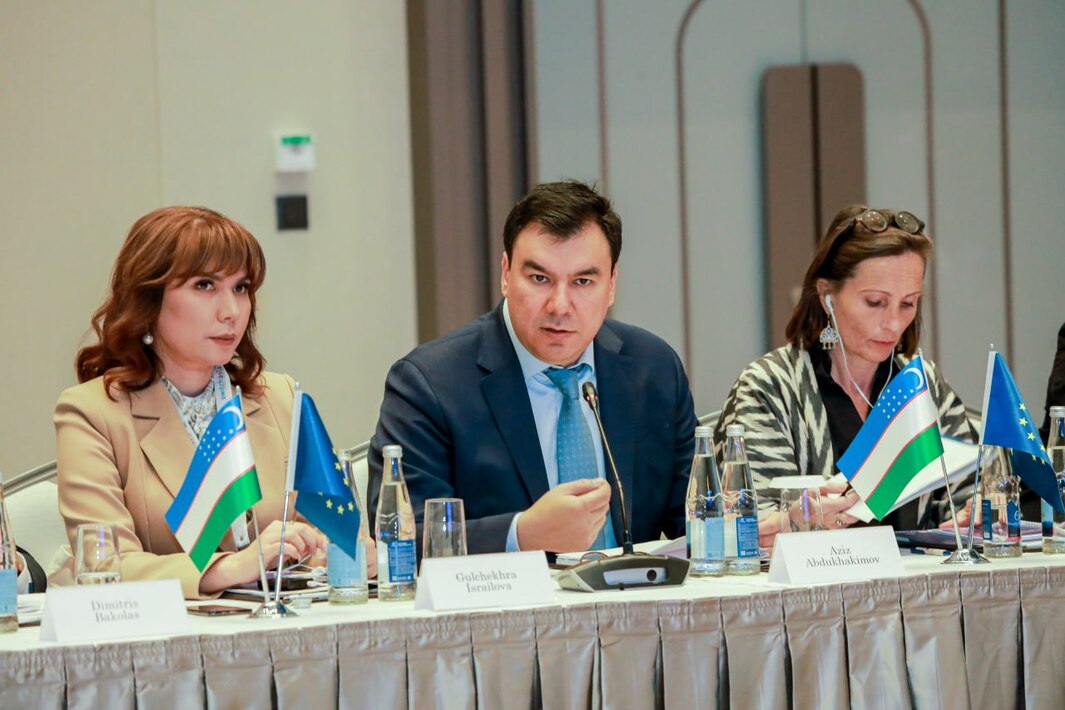
Today, all areas of tourism are rapidly developing in Uzbekistan, including sustainable tourism.
In particular, Uzbekistan is a participant in the MOST project - “Model of Sustainable Tourism in Central Asia: Capacity Building, Awareness Raising, Technology Implementation”. The project is recognized to increase the tourism potential of the countries of the Central Asian region. It is being implemented within the frameworks of the European Union initiative and of the SWITCH-ASIA program.
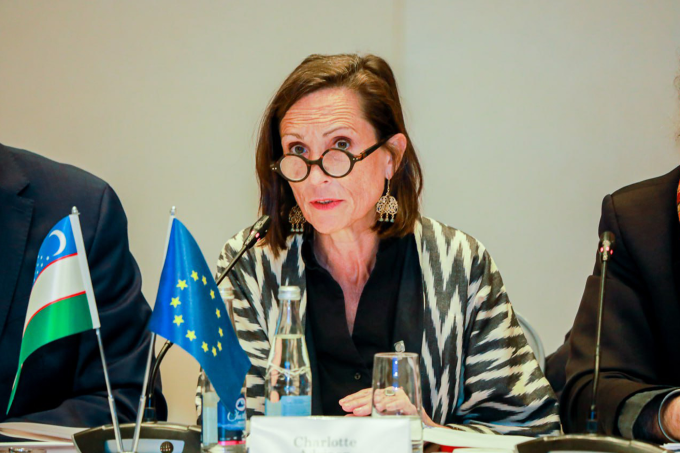
The strategic goal of the Project is to increase environmental awareness and introduce appropriate practices and technologies into the tourism business of Central Asian countries. The implementing organization of the initiative is the Association of Private Tourism Agencies of Uzbekistan (APTA).
The main goal of MOST is to promote a new and acceptable structured model of sustainable tourism in Uzbekistan, Tajikistan and Kazakhstan. The initiative promotes the preservation and strengthening of local cultural heritage and traditional values, as well as environmental protection.
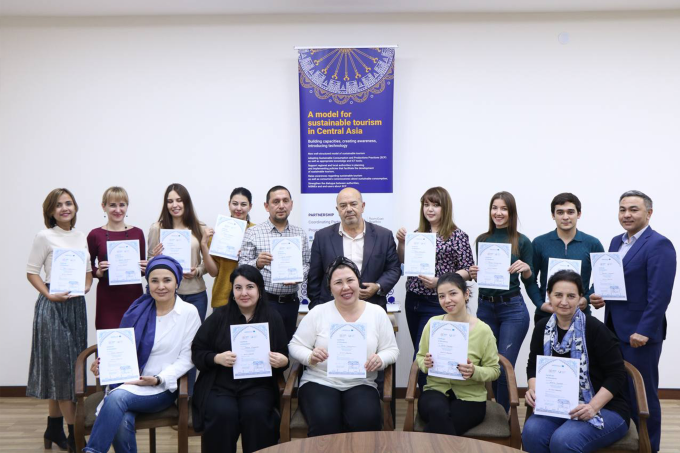
In order to raise awareness among representatives of the tourism business, training sessions, seminars and round tables were organized within the framework of the Project in Khorezm, Bukhara, Samarkand regions and the city of Tashkent. More than 730 representatives of tourism enterprises attended the following seminars:
- “Training representatives of the hotel business in sustainable tourism marketing”;
- “Green technologies”;
- “Sustainable planning and environmental protection in the tourism sector of the Republic of Uzbekistan”;
- “Identification of problems in sustainable planning and environmental protection in the tourism sector”;
- “New Horizons: Expanding cooperation in the field of green technologies. Ecological certification".
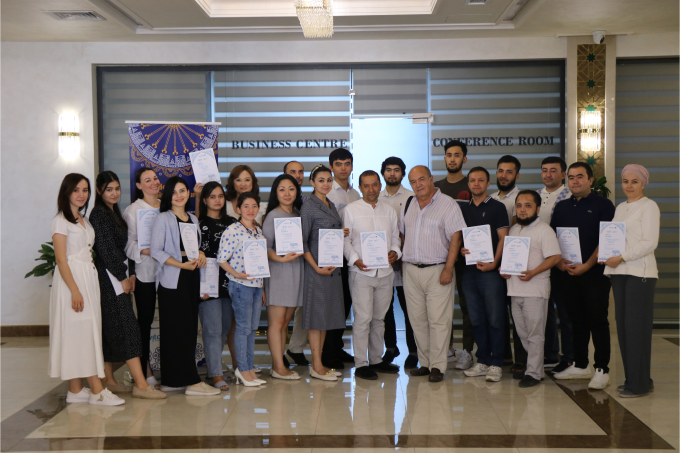
With the financial support of the European Union within the framework of the SWITCH-ASIA program and the MOST project, methodological support was provided to tourism organizations. Guidelines have been published: “Policy recommendations, improving the legislative framework in the field of sustainable tourism”, “Transfer of EU best practices in the field of tourism for Central Asian countries”, “Guidelines on sustainable consumption and rational use of water, energy, recycling and energy behavior, as well as on how to be a responsible traveler in general."
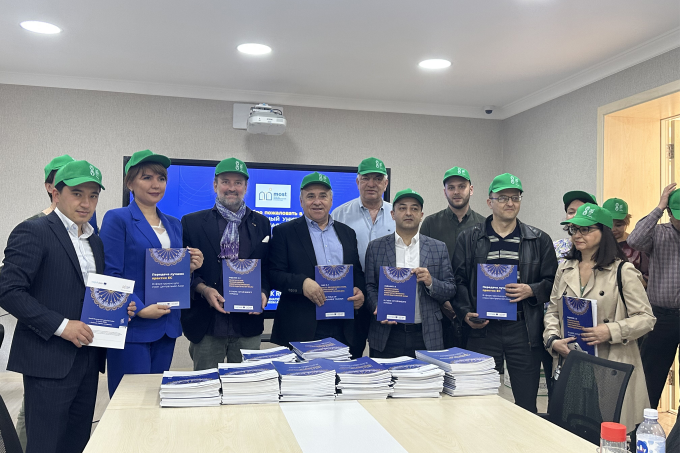
Also, on March 27, 2023, an international conference was held in Tashkent - “Development of a sustainable tourism model - the path to increasing tourism potential.”
The conference was attended by more than 160 specialists, in particular, international experts, partners of the MOST project - Heraklion Development Agency (Crete, Greece), European Profiles S.A. (Greece), APINTECH (Cyprus), Latvian Rural Tourism Association, the final beneficiaries of the EU grant are the Association of Private Tourism Organizations of Uzbekistan, the Eurasian Tourism Association (Kazakhstan), the Tajik Association of Tourism Organizations, as well as representatives of the tourism industry, local and foreign media.
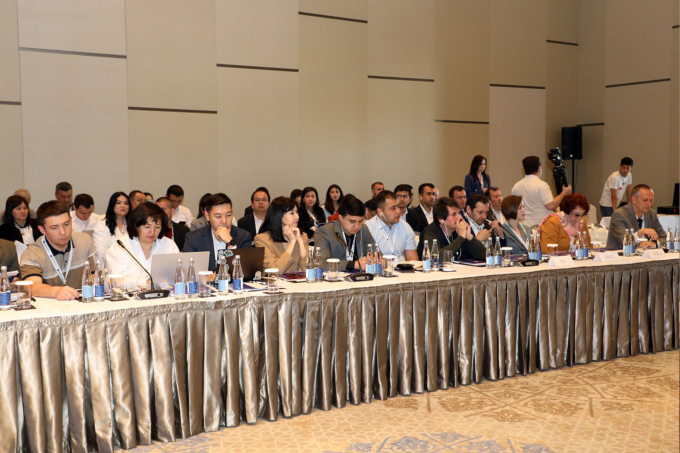
As part of the events for the International Conference on March 29 of this year in Samarkand at the International University of Tourism and Cultural Heritage “Silk Road”, a meeting was organized with representatives of the Project’s partner organizations.
The meeting was attended by the Chairman of the Association of Private Tourism Organizations of Uzbekistan Gulchehra Israilova, the Chief Secretary of the Ministry of Agriculture of Greece Papayanidis Dimitris, as well as representatives of partner organizations of the MOST project from Greece, Cyprus, Latvia, Kazakhstan and Tajikistan. The parties discussed the development of a sustainable tourism model and the introduction of “green” technologies in the field of tourism.
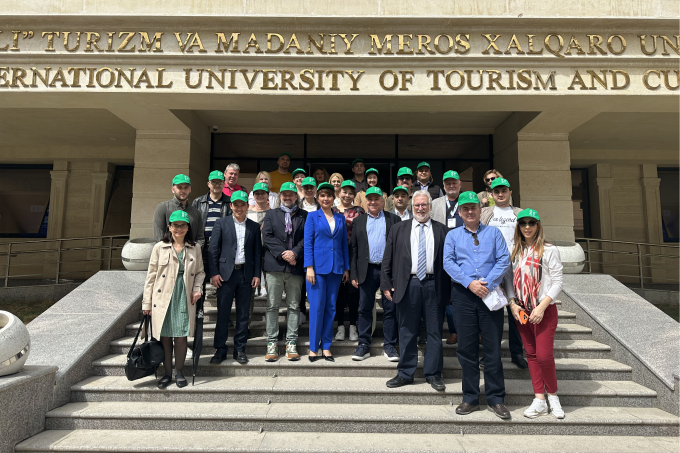
Representatives of the tourism industry were also provided with technical support, provided with energy/water consumption meters, as well as sensors for recording and monitoring conditions in the premises.
The accommodation facilities are equipped with smart meters – Shelly 3EM (professional three-phase electricity meter) and Shelly H&T (humidity and temperature sensor with Wi-Fi). Their installation was carried out free of charge, at the request of the managers of accommodation facilities and travel companies, and were initiated by the Hotel Carbon Change Initiative (HCMI).
In addition, software technologies have been introduced for data management for environmental certification purposes, training has been organized on GSTC (Global Sustainable Tourism Council) and green procurement criteria to improve competitiveness, eco-certification according to standards such as ISO 14001:2015 (Environmental Management System), HCMI (Hotel Carbon Measurement Initiative), CSR (Corporate Social Responsibility).
The introduction of eco-programs into the hospitality industry will allow tourism organizations not only to take care of the environment and rationally use natural resources, but is also a powerful marketing “green” tool to stimulate growth in profitability, rentability and increase competitiveness.
The presence of eco-certification has a positive effect on the image of the hotel business and serves to increase guest loyalty. Thankfully, tour operators and tourists are beginning to choose such hotels for cooperation more often, which helps to generate additional profits.
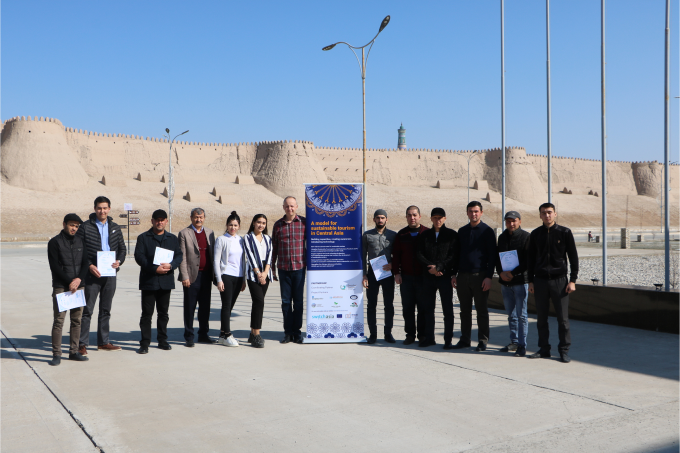
In addition, a large-scale PR campaign was carried out as part of the Project. National television channels have aired educational television programs about sustainable tourism, published articles in the country's leading media, launched raffles with prizes and quizzes that increase interest in sustainable tourism and green technologies.
The concept of sustainable tourism is incredibly important. It is necessary to constantly remember the rational use of resources, careful treatment of nature and the preservation of cultural heritage.
Of course, the tourism industry of Uzbekistan will continue to develop and the number of travelers will grow rapidly. The mission of sustainable tourism is to form eco-habits among today's travelers and representatives of the tourism industry, which will subsequently become long-term for the successful functioning of the tourism industry in the future.

